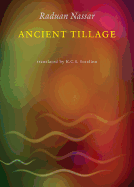
Raduan Nassar's Ancient Tillage, newly translated by K.C.S. Sotelino, offers a Dionysian rush of lyricism, a drunken dance of description and imagery that opens the darkest doors of human desire. First published in Brazil in 1975, this short yet emotionally intense novel is divided into 30 chapters, ranging in length from a few pages to brief single paragraphs. The tragic tale of a farmer family in dissolution is revealed through the point of view of André, the family's adolescent son, who is torn between a father's piety and his own indulgent desire for his sister, Ana. His transgressive sexuality and poetic sensibilities become a potent, anarchic force undermining patriarchal order.
In this way, Ancient Tillage extends the dark romantic individualism of Johann Wolfgang von Goethe; it presents the individual mind as bold destroyer of hierarchy but also, in turn, as a passive receptacle, fatally sensitive and eternally haunted by images and desires. That such self-indulgence leads to familial strife and tragedy, as in Goethe's novels, is not surprising. But unlike his European predecessors, Nassar (A Cup of Rage) hews an earthy, sensual expressionism more reminiscent of Latin American poets like Pablo Neruda. The novel brims with lavish images and symbols of nature, such as "the damp, silent blue breeze that soars like a scarf over the atmosphere at the same time every day." Nassar's sentences flow in sinuous, mesmerizing waves, educing "destiny's baroque geometry" and the "bright dust" of creation. Deeply stirring and unforgettable, Ancient Tillage is nothing short of a literary masterpiece. --Scott Neuffer, freelance journalist and fiction author

